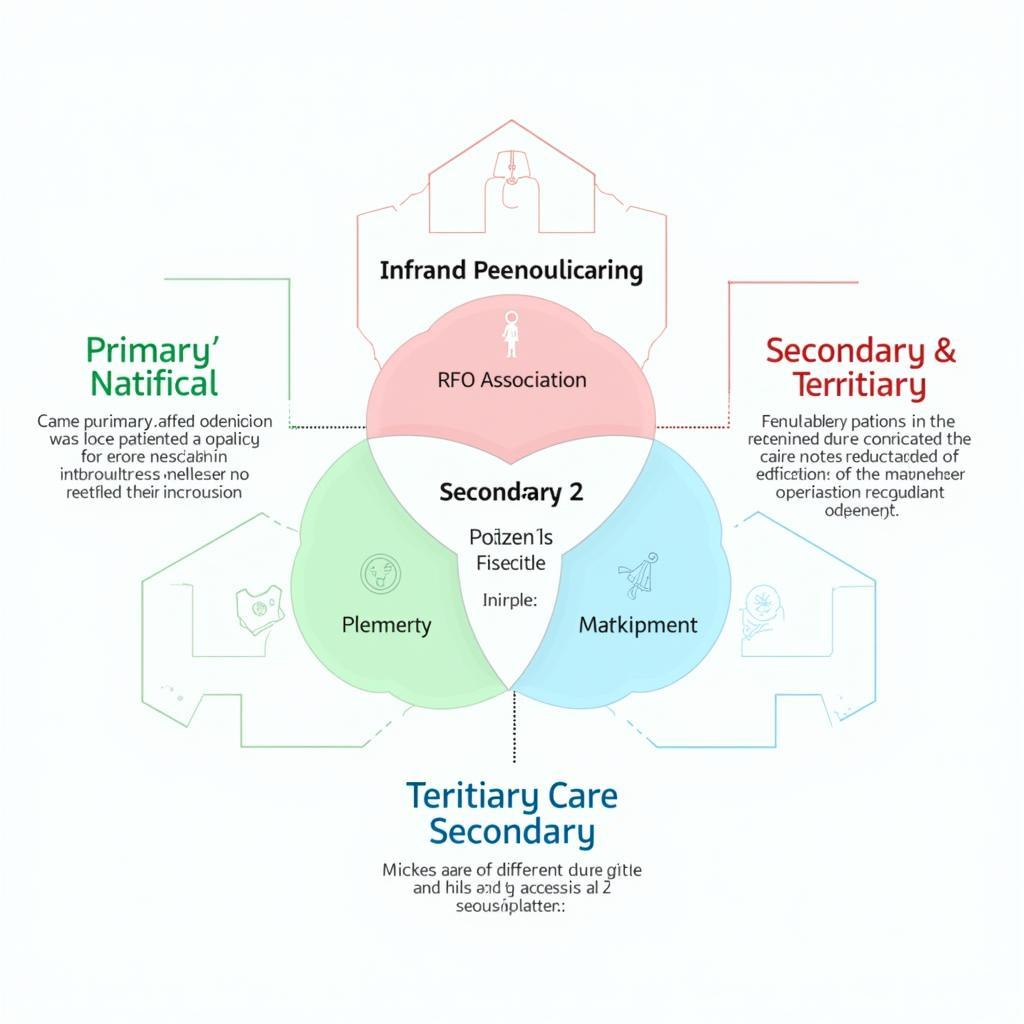What Type of Service is Provided in Secondary Care?
Secondary care involves specialized medical services provided by clinicians in a hospital or clinic. These services are not available at a primary care level and often require more advanced diagnostic and treatment facilities.
 Secondary Care Services
Secondary Care Services
Delving Deeper into Secondary Care
Secondary care bridges the gap between primary care and tertiary care. When a patient’s condition requires specialized attention beyond the scope of a primary care physician, they are referred to secondary care specialists.
Who are Secondary Care Providers?
Secondary care providers are specialists with expertise in specific areas of medicine. These professionals often have advanced training and certifications in their respective fields. Examples of secondary care providers include:
- Cardiologists: Specializing in heart health.
- Oncologists: Focusing on cancer diagnosis and treatment.
- Endocrinologists: Managing hormone-related conditions.
- Gastroenterologists: Specializing in digestive health.
- Neurologists: Treating disorders of the nervous system.
 Medical Specialists in Secondary Care
Medical Specialists in Secondary Care
When Do You Need Secondary Care?
You might need secondary care if you experience:
- Chronic conditions: Such as diabetes, asthma, or hypertension, requiring ongoing management by a specialist.
- Complex medical needs: Conditions demanding specialized expertise and interventions beyond the scope of primary care.
- Injuries: Requiring surgical intervention, specialized wound care, or rehabilitation services.
- Referral from primary care: When your primary care physician deems your condition necessitates specialized attention.
The Benefits of Secondary Care
Opting for secondary care offers several advantages, including:
- Specialized expertise: Access to clinicians with in-depth knowledge and experience in specific medical fields.
- Advanced diagnostics: Availability of sophisticated technologies and procedures for accurate diagnosis.
- Comprehensive treatment: Multidisciplinary approach to patient care, involving collaboration among various specialists.
- Improved health outcomes: Targeted interventions and specialized management often lead to better treatment outcomes and improved quality of life.
The Interplay of Primary, Secondary, and Tertiary Care
Navigating the healthcare system effectively involves understanding the roles of primary, secondary, and tertiary care:
Primary care: Your initial point of contact for general health concerns.
Secondary care: Specialized medical services provided by clinicians with expertise in specific areas.
Tertiary care: Highly specialized medical care typically involving advanced procedures and treatments.
 The Healthcare Continuum
The Healthcare Continuum
Conclusion
Secondary care plays a crucial role in the healthcare system, providing specialized medical services and bridging the gap between primary and tertiary care. Understanding the services provided in secondary care empowers individuals to navigate the healthcare system effectively and seek appropriate medical attention when needed.
FAQs about Secondary Care
1. How do I know if I need secondary care?
If you have a complex medical condition, require specialized treatment, or have been referred by your primary care physician, you likely need secondary care.
2. Do I need a referral for secondary care?
While some secondary care providers might offer direct appointments, having a referral from your primary care physician is often recommended.
3. Is secondary care covered by insurance?
Insurance coverage for secondary care varies depending on your specific plan. It’s essential to check your policy details or contact your insurance provider.
4. How long does it take to get an appointment for secondary care?
Wait times for secondary care appointments can vary depending on the specialist, their availability, and the urgency of your condition.
5. What should I expect at my first secondary care appointment?
Your first appointment will likely involve a detailed discussion of your medical history, a physical examination, and potentially some diagnostic tests.
Need Assistance?
For any questions or support regarding car services, contact us via WhatsApp at +1(641)206-8880 or email us at [email protected]. Our dedicated customer support team is available 24/7 to assist you.

